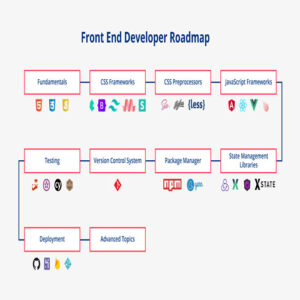VOIP
VoIP phone systems are pretty widespread in the business world. These systems are well-known to many individuals. Almost every day goes by without VoIP making news for one reason or another. Over the next decade, the technology is expected to supplant the PSTN. In certain regions, phone companies have already declared sunset dates for the older network. VoIP Calls are unquestionably the norm of the future. However, a few aspects of VoIP are not widely known. Continue reading to learn seven fascinating facts about VoIP.
In 1974, the first VoIP call was made
When do you suppose VoIP technology initially appeared? VoIP has only recently gained popularity. Although they are now part of the mainstream, they were not always so. Many people believe it is brand new when, in fact, it has been around for quite some time.
The initial version of VoIP was launched in 1974, using the US military research network ARPANET. That version, like modern VoIP, uses packets to transfer voice data. It means that VoIP is several decades older than most people believe.
There are various reasons why VoIP has taken so long to acquire traction. For starters, high-speed internet connections were not prevalent at the time. It means that the first VoIP calls had poor audio quality, failed connections, and other problems.
Another explanation is that long-distance phone calls were not necessary for businesses 40-50 years ago. Even a tiny business nowadays may have partners and consumers in multiple countries. One factor for VoIP’s rapid growth was the demand for low-cost international calls.
Ads used to play during VoIP talks
Would you think that the first VoIP calls were preceded by advertisements? Back then, consumers paid for VoIP calls in this manner. Fortunately for us, that revenue model faded as VoIP became more widespread and accessible to more people.
As high-speed connections become more prevalent, most VIP calls became very cheap or free. As a result, advertising no longer required to monetize VoIP calls.
For various reasons, advertisements during VoIP calls are a lousy idea. One disadvantage is that they are quite obtrusive, especially when individuals anticipate privacy when making phone calls. They also increase the data packet size. It means you’ll require more bandwidth to make calls.
No phone is necessary
If you’ve never use a VoIP phone service, you may be surprised to learn that you don’t need a phone to make calls. VoIP technology is not dependent on any certain device. Computers, cellphones, tablets, and other gadgets can use to make and receive calls.
So, why are there so many VoIP desk phones? There are hundreds of models available, with prices ranging from around $50 to thousands of dollars. The reason is straightforward. Different types of hardware are available to meet the various needs of consumers and enterprises.
For example, a person using VoIP at home may only need to utilize their smartphone for the job. They do not desire or require additional features. However, a contractor or freelancer working from home may value the ability to switch between callers, place clients on hold, play hold music, and so on. Some of these functions are simply more convenient to utilize on a desk phone with buttons.
Conference audio systems, on the other hand, are designed for meetings and training sessions. They feature a number of high-quality microphones and speakers that allow huge groups to converse. When communicating with major clients, CEOs and other executives may require larger screens and better audio.
VoIP had a role in the rise of international call centers
As VoIP systems became more prevalent, they aided the rise of outsourcing. This occurred primarily in the 1990s. What is the connection between the two phenomena? Outsourcing was made possible largely due to two factors:
- VoIP
- Labor costs are low
Contact centers were able to relocate to other countries because to VoIP. These calls cost less than typical long-distance calls. VoIP was also more efficient than analog at transmitting calls. Businesses could purchase local phone lines in specific markets and clients would never realize their company was not in the UK!
Businesses discovered that by relocating their call centers to other nations, they could reduce the cost of customer assistance.
A VoIP phone service saves up to 90% on international calls
According to recent study, a VoIP phone system can save users up to 90% on international calling rates. Local calls reduce this figure to 40%, but who wants to pay more for any service if they don’t have to?
VoIP can save you money in a variety of ways, not only by providing free or low-cost calls. To make VoIP calls, no special equipment is required. They are not required to pay software licenses or maintain their own servers. Clients no longer need to own, repair, or maintain their own equipment thanks to hosted VoIP services offered online. A business-class VoIP service can be up and running in less than a day (at most!).
Another advantage of VoIP is that it is adaptable and scalable. A company might begin with simply a few numbers and lines. You just pay for the services you utilize. Then, if needed, you can add more resources. Is there a seasonal demand? Include additional lines just for those few weeks or months. Considering entering new markets? Add resources and get started right away with a local phone number (even if you don’t currently have an office).
VoIP enables organizations to develop, expand, and adapt to changing circumstances.
A cloud VoIP phone could have no setup fees
That’s correct. How many technologies come to mind that allow enterprises or people to begin using them for free? One such system is VoIP. The cost of setting up and using VoIP varies greatly from one company to the next. However, it is feasible to get started with a cloud VoIP phone for free!
Let’s have a look at how you can do this quickly. Consider a startup or small company with a few employees. When a company like this begins to look for phone service, they are not looking for all the bells and whistles. They most likely lack the necessary resources.
They would have had no alternative but to purchase a package deal from a legacy carrier prior to the emergence of VoIP. They would require to sign a contract outlining the minimum number of lines, phones, and other resources. Adding services like voicemail, international calling, and caller ID would incur additional costs.
However, a simple VoIP phone in the cloud will cost them nothing. Even the most basic business plan will include several free benefits. You can either pay as you go or purchase bundles of minutes in advance. The company solely pays for calls made through the program. There is no gear to purchase and no contracts to sign. The customer has the option to change suppliers at any moment. Is it any surprise that the majority of small business owners favor VoIP?
Most individuals have no idea it’s VoIP
It was fairly easy to identify the difference between VoIP and analog calls in the early stages. VoIP calls had poor audio quality, choppy discussions, lost calls, and missing words as compared to landlines. It was a terrible experience. It’s no surprise that businesses were hesitant to use VoIP at all, let alone rely on it.
Since those early days, we’ve come a long way. VoIP technology advanced, and vendors devised novel solutions to long-standing issues. Nowadays, it’s difficult to identify the difference between a landline and a VoIP call. Few individuals can tell if they’re chatting on VoIP or if the person on the other end of the line is utilizing the PSTN. In most circumstances, it is impossible to tell the difference between VoIP and other calls.
The majority of people are unaware that VoIP powers many popular services. Did you realize that Skype is a type of VoIP? The service deploys their platform using proprietary protocols, however it is VoIP technology. Most smartphones can also make VoIP calls. It’s possible that you won’t even need a separate app for it. Even if their clients are unaware, most phone companies have migrated to VoIP for their network infrastructure. VoIP is everywhere, and you never know whether it is!
We hope you enjoyed our 7 fascinating VoIP facts. Sign up for a 30-day free trial today and enter the world of VoIP.










